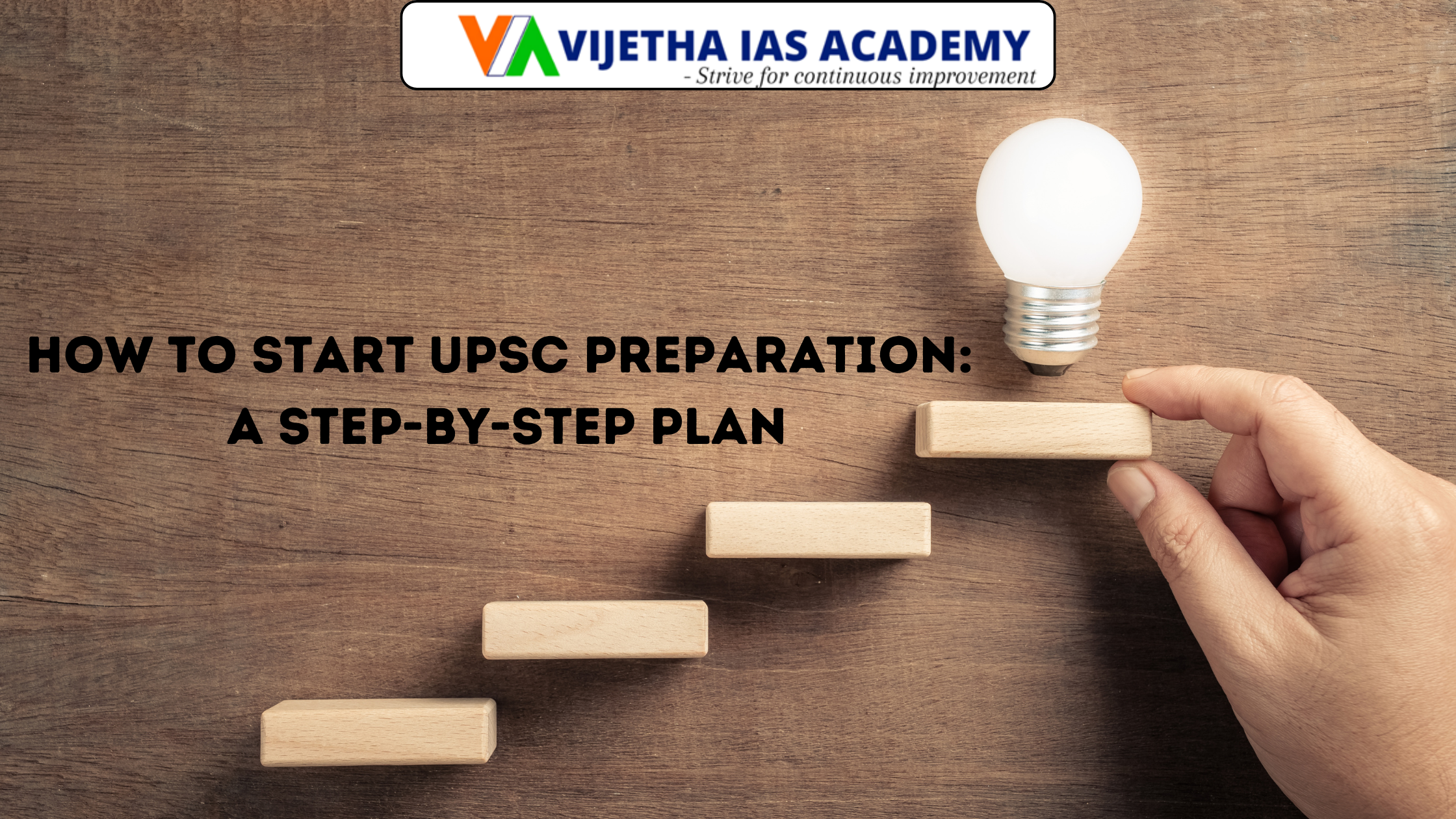
How to Start UPSC Preparation: A Step-by-Step Plan
The Union Public Service Commission (UPSC) exam is one of the most prestigious and challenging exams in India. Every year, thousands of aspirants set their sights on cracking this exam to secure a position in the Indian Administrative Services (IAS), Indian Police Services (IPS), Indian Foreign Services (IFS), and other central services. Starting your UPSC preparation can be daunting, but with a systematic and strategic approach, you can set yourself up for success. This step-by-step plan will guide you through the initial stages of your UPSC preparation journey.
Step 1: Understand the UPSC Exam Structure
Before diving into preparation, it's crucial to understand the UPSC exam structure. The exam consists of three stages:
- Preliminary Examination (Prelims): This is an objective test consisting of two papers - General Studies (GS) and the Civil Services Aptitude Test (CSAT). Both papers are crucial for qualifying for the next stage.
- Main Examination (Mains): This is a descriptive test comprising nine papers, including four General Studies papers, two optional subject papers, one essay paper, and two language papers (one of which is English).
- Personality Test (Interview): The final stage is a face-to-face interview assessing the candidate's personality, general awareness, and suitability for a career in civil services.
Step 2: Familiarize Yourself with the Syllabus
The UPSC syllabus is extensive and covers a wide range of subjects. Familiarizing yourself with the syllabus will help you understand what to study and how to plan your preparation. The detailed syllabus is available on the official UPSC website.
Step 3: Choose the Right Optional Subject
Selecting the right optional subject is critical as it can significantly impact your Mains score. Choose a subject that you are passionate about and have some background in. Kishore Sir Anthropology at Vijetha IAS Academy is a popular choice among aspirants due to its structured approach and scoring potential. His guidance can provide a strong foundation in Anthropology.
Step 4: Create a Study Plan
A well-structured study plan is the backbone of your preparation. Here’s how to create an effective study plan:
1. Set Clear Goals
Break down your preparation into manageable chunks and set clear, achievable goals. This could be daily, weekly, or monthly targets.
2. Allocate Time Wisely
Divide your time effectively between different subjects. Ensure you allocate sufficient time for each subject, including your optional subject, current affairs, and revision.
3. Be Consistent
Consistency is key to cracking the UPSC exam. Stick to your study plan diligently and avoid procrastination.
Step 5: Gather Quality Study Material
Quality study material is essential for effective preparation. Here are some recommended resources:
- Polity: M. Laxmikanth’s "Indian Polity"
- History: Bipan Chandra’s ""India’s Struggle for Independence"
- Geography: G.C. Leong’s "Physical Geography"
- Economics: Ramesh Singh’s "Indian Economy"
- Current Affairs: Newspapers like The Hindu and Indian Express, and monthly magazines like Yojana and Kurukshetra
Additionally, enrolling in specialized courses at Vijetha IAS Academy can provide comprehensive and structured study material.
Step 6: Focus on NCERT Books
NCERT books from classes VI to XII are fundamental to your preparation. They provide a clear and concise understanding of basic concepts and form the foundation for higher-level studies.
Step 7: Make Concise Notes
While studying, make concise and organized notes. These notes will be invaluable during revision. Ensure they are topic-wise and highlight key points, dates, and events.
Step 8: Practice Previous Year Papers and Mock Tests
Practicing previous years' question papers and taking regular mock tests is crucial. This helps you understand the exam pattern, improve your time management skills, and identify areas of improvement.
Step 9: Stay Updated with Current Affairs
Current affairs play a significant role in both Prelims and Mains. Develop a habit of reading newspapers daily and making notes of important events, government schemes, and international relations. This will help you stay informed and enhance your answers in the Mains exam.
Step 10: Join a Coaching Institute
While self-study is essential, joining a reputed coaching institute can provide an edge. Institutes like Vijetha IAS Academy are known for their excellent faculty, including Kishore Sir for Anthropology, and comprehensive study material. Their structured courses and regular tests can help you stay on track and clear your doubts.
Step 11: Regular Revision
Revision is critical to retaining what you have studied. Make it a habit to revise regularly, preferably on a weekly basis. This will help reinforce your knowledge and ensure you remember key points during the exam.
Step 12: Develop Answer Writing Skills
For the Mains exam, developing answer writing skills is crucial. Practice writing answers regularly, focusing on clarity, coherence, and conciseness. Joining a test series can help you improve your writing skills and get feedback on your performance.
Step 13: Prepare for the Personality Test
The interview stage tests your personality, confidence, and ability to handle pressure. Here are some tips:
1. Be Well-Informed
Be thorough with your DAF (Detailed Application Form) as questions will be based on your background, education, and hobbies. Stay updated with current affairs and significant national and international events.
2. Participate in Mock Interviews
Participate in mock interviews to get a feel of the real interview. This will help build your confidence and improve your communication skills.
3. Be Honest and Confident
During the interview, be honest in your responses. Confidence, clarity of thought, and a calm demeanor can leave a lasting impression on the interview panel.
Final Words of Encouragement
Starting your UPSC preparation can seem overwhelming, but with a well-structured plan and the right guidance, you can navigate this journey successfully. Remember, perseverance, dedication, and a positive mindset are key to cracking the UPSC exam. Leverage resources like Vijetha IAS Academy for structured learning and expert guidance from Kishore Sir in Anthropology to enhance your preparation.
